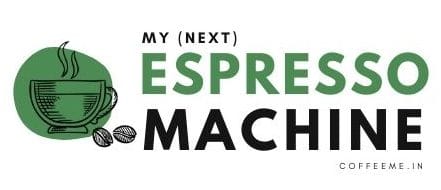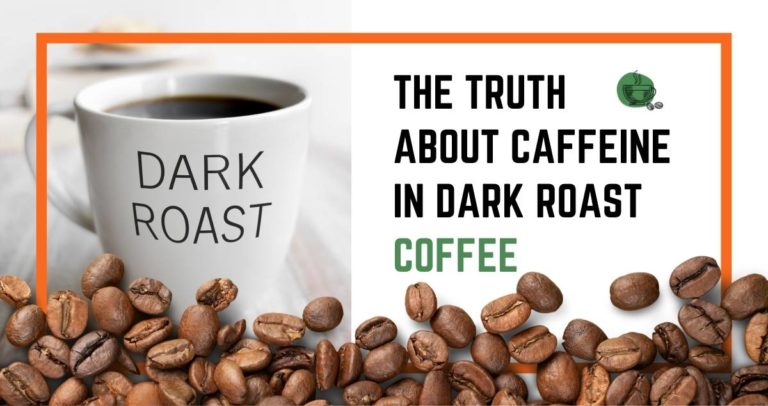You’ve probably heard dark roast coffee has less caffeine than light or medium roast coffee. And you may have even heard it’s better for you, too. After all, isn’t anything that’s been roasted longer better for you? Well, as it turns out, that’s not necessarily the case.
The bottom line is that dark roast coffee does have less caffeine than light roast coffee. However, the difference is not as significant as you might think. Studies have found no significant difference in antioxidant levels between dark and light roast coffees.
Now, let’s take a closer look at the difference between dark and light roast coffee and discover what really affects the caffeine level of your coffee.
Skip to the best part:
What’s the difference between light, medium, and dark roasts?
The main difference between light, medium and dark roast coffees is the time the beans are roasted. Light roast coffees are roasted for a shorter period. This results in less dark coffee and a more mellow flavor.
Medium roast coffees are roasted for a more extended time than light roast, resulting in a coffee that is darker in color and has a more robust flavor.
Dark roast coffees are roasted for an even more extended period, resulting in a coffee that is very dark in color and has a bolder, sometimes even smoky flavor.
Why does dark roast coffee have less caffeine than light roast coffee?
For those who need our caffeine fix in the morning, it’s important to understand the difference between dark and light roast coffee.
Caffeine is present in all coffee beans, regardless of the roast. It’s true that dark roast coffee generally has less caffeine than light or medium roast coffee. This is because some of the caffeine molecules are broken down during roasting, so less is left behind in the final product.
However, the difference is usually only about 5-10%. A cup of dark roast coffee has about 12-14mg of caffeine, while a cup of light roast coffee has about 16-18mg of caffeine.
In contrast, light roast coffee beans are roasted for a shorter period and retain more caffeine. They also have a lighter flavor, which some coffee drinkers prefer.
So if you’re looking to cut back on your caffeine intake, switching to dark roast coffee probably isn’t going to make much of a difference. Remember that the roasting process brings out the oils in the beans, giving dark roast coffee its characteristic rich flavor. So a dark roast is better if you’re after a rich, full-flavored cup of joe.
The Health Benefits of Dark Roast Coffee
Some believe that dark roast coffee is healthier, and others believe that light roast is more beneficial due to a higher level of antioxidants. However, this claim is unsubstantiated.
In fact, a study published in 2012 found no significant difference in the antioxidant content of light, medium, and dark roast coffees.
So if you want to increase your intake of antioxidants, you’re better off eating foods like berries or leafy greens.
What other factors affect the level of caffeine in coffee beans?
The type of coffee bean you use, as well as how it’s roasted, will affect the caffeine level in your cup of coffee.
For example, Arabica beans generally have less caffeine than Robusta beans. And light roast coffee will have more caffeine than dark roast coffee.
So if you’re looking for a high-caffeine brew, you’ll want to use Robusta beans and roast them to a light or medium roast.
Does the coffee brewing method affect caffeine levels?
Yes, it does. The longer the coffee beans are in contact with water, the more caffeine they will extract.
So if you want a strong cup of coffee with lots of caffeine, you should brew it using the French press method. This method allows the grounds to steep in the water for longer, resulting in a more concentrated brew.
On the other hand, if you’re looking for a weaker cup of coffee with less caffeine, you should brew it using the drip method. This method involves pouring hot water over the grounds and then filtering it through a paper filter. This filters out most coffee oils and solids, leaving a less concentrated brew.
Cold brew coffee generally has more caffeine than hot brew coffee. This is because the brewing process takes longer, and the beans are in contact with water for a longer time.
Caffeine in Dark Roast Coffee – Final Thoughts
So there you have it: the truth about dark roast coffee. It doesn’t have significantly less caffeine than light roast, and there’s no evidence to support the claim that it’s more antioxidant-rich. However, that doesn’t mean dark roast coffee isn’t delicious and worth drinking! If you prefer the taste of dark roast over lighter roasts, then, by all means, enjoy it! Just don’t believe everything you hear about it.
Resources:
- Influence of Various Factors on Caffeine Content in Coffee Brews – National Library of Medicine
- Identification of nutritional descriptors of roasting intensity in beverages of Arabica and Robusta coffee beans– National Library of Medicine
- Comparative study of polyphenols and caffeine in different coffee varieties affected by the degree of roasting– National Library of Medicine
- Light vs. Dark Roast Coffee: What’s the Difference? – Healthline



